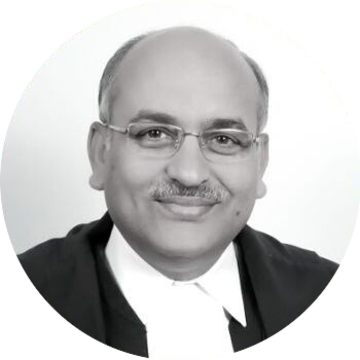Pankaj Mithal

Pankaj Mithal
Sitting Judge of the Supreme Court of India
Assumed Office6th Feb, 2023
Retires On16th Jun, 2026
Previously
Chief Justice Rajasthan HCOctober 14th 2022- February 5th 2023
Chief Justice Jammu & Kashmir HCJanuary 4th 2021- October 13th 2022
Permanent Judge Allahabad HCJuly 2nd 2008 - January 3rd 2021
Additional Judge Allahabad HCJuly 7th 2006 - July 1st 2008
Profile
Early life and education
Justice Pankaj Mithal was born on 17 June 1961. His grandfather, Babu Brij Nath Mithal, his uncle, Raghuvar Dayal Mithal, and his father, Narendra Nath Mithal were all lawyers. His uncle was an expert in civil matters and his father was appointed as a permanent judge of the Allahabad High Court in 1982.
In 1982, Justice Mithal completed his B.Com (Honours) from Allahabad University and subsequently in 1985, graduated in law from Chaudhary Charan Singh University, Meerut.
Career as an advocate
Justice Mithal enrolled at the Uttar Pradesh Bar Council in 1985 after completing his LL.B. He became the Standing Counsel for Uttar Pradesh Avas Evam Vikas Parishad, Lucknow, and Dr. B.R. Ambedkar University, Agra.
During his days as an advocate, he was well-known for his writing. His work ‘The Birth and Life of the High Court of Judicature at Allahabad’, which traces the Allahabad High Court’s history, remains widely read even today.
Career as a judge
On 7 July 2006, Justice Mithal was appointed as an additional judge of the Allahabad High Court and became a permanent judge on 2 July 2008. On 4 January 2021, he was elevated as the Chief Justice of the Jammu & Kashmir High Court. He was then transferred as Chief Justice of the Rajasthan High Court on 14 October 2022.
As a judge of the Allahabad High Court and Chief Justice of the Jammu & Kashmir and Rajasthan High Courts he delivered over 37,000 judgments on various issues ranging from housing, banking, succession, and labour laws.
He was also involved in many administrative functions at the Allahabad High Court. For instance, he was a member of the committee to supervise the construction of the High Court museum, the Committee of Higher Judicial Services, the Library Committee etc.
He is interested in philately and is an avid stamp collector. He was a member of the Sub-Committee on Coins and Postage Stamps at the Allahabad HC.
Justice Mithal has authored 22 judgements and has been part of 192 benches.
The majority of judgements authored by Justice Mithal are in property matters (27%), followed by civil (23%), criminal (17%), limitation, tenancy (7% each), and other matters (20%).
Notable judgements
On 22 January 2025, in Mohd. Tahir Hussain v State of NCT of Delhi, a bench of Justices Mithal and Ahsanuddin Amanullah delivered a split verdict in former Aam Aadmi Party councillor Tahir Hussain’s petition seeking interim bail to campaign for the Delhi Assembly elections. The special leave petition had challenged a Delhi High Court order which refused him interim bail and only granted custody parole to file his nomination from the Mustafabad constituency. Tahir Hussain is a key accused in the 2020 Northeast Delhi riots case and faces serious charges, including for the murder of an Intelligence Bureau staffer, Ankit Sharma.
Justice Mithal reasoned that granting interim bail for elections could open a “pandora’s box” in the cases of other undertrials and could potentially lead to witness tampering. Justice Amanullah, however, allowed the interim bail until 4 February 2025, citing Hussain’s five years of custody. In view of the divergence, the case was referred to the Chief Justice of India to constitute a larger bench to hear the case. Subsequently, a three-judge bench comprising Justices Vikram Nath, Sanjay Karol, and Sandeep Mehta granted custody parole to Hussain on 28 January 2025.
On 29 February 2024, in High Court Bar Association, Allahabad v State of UP, Justice Mithal, concurring with the majority judgement authored by Justice A.S. Oka clarified that stay orders could not automatically lapse without an application for their vacation. Overruling the decision in Asian Resurfacing of Road Agency v CBI (2018) and Article 226(3), he emphasised that due process must be followed before vacating a stay.
On 1 August 2024, in State of Punjab v Davinder Singh, a seven-judge Constitution Bench including Justice Mithal, upheld the validity of sub-classification within Scheduled Castes for the purpose of reservations in a 6:1 majority. The bench overturned the judgement in E.V. Chinnaiah v State of Andhra Pradesh (2004), which held that Scheduled Castes, as a class, could not be internally divided for reservation benefits.
Justice Mithal authored a concurring opinion in this case. He reasoned that sub-classification within Scheduled Castes was constitutionally permissible and emphasised that the benefits of reservation often fail to reach the most disadvantaged groups. He also highlighted India’s transition from a caste-based to a casteless society and the need to periodically reassess reservation policies.
